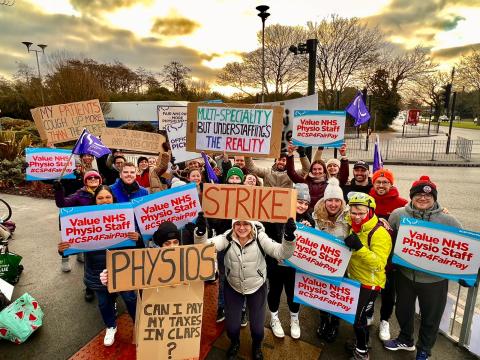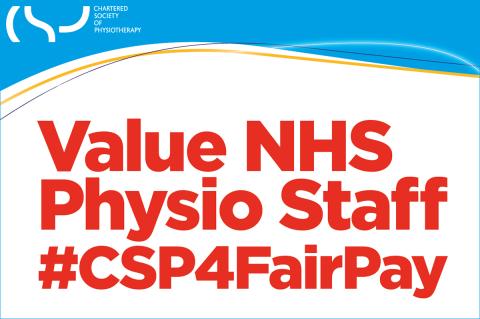The latest on the 2024/25 pay process
What is happening in 2024/25?
At least initially, the 2024/25 pay process is returning to a more typical Pay Review Body (PRB) process. The PRB is independent from government and reviews information and evidence from health unions, the government itself, and NHS employers. It will then make recommendations to ministers. It is the government which decides whether to accept these recommendations.
Members should have received a further pay rise for 2024/25 on 1 April. However, this year government only instructed the PRB to prepare their report at the very end of December 2023, and called for the PRB to respond by May. This means members and other NHS staff, once again, see a delay in any increase in their salaries for next year.
Furthermore, in their remit letter, the government instructs the PRB to ‘consider the historic nature of the 2023 to 2024 awards’ – in reality, a real terms pay cut – ‘and the government’s affordability position’ when making recommendations. This strongly suggests the UK government is preparing for an austerity approach to NHS pay and is attempting to bind the PRB’s hands at the outset.
Whilst they are significant concerns, the CSP has contributed evidence to the PRB process, engaging workplace representatives and lay members in focus group research to prepare our case.
Any pay award that follows this process will be put to our NHS members. As in 2022/23, we will continue the pursuit of fair and timely pay awards for our members, campaigning with the other health unions.
Concerns about a separate pay scale for nursing
An offer from the Secretary of State has been made to the Royal College of Nursing (RCN) to explore the feasibility of separate pay arrangements for nurses.
The other 13 unions covered by Agenda for Change, including the CSP, do not support the proposals. We believe there are significant legal and industrial barriers to separate pay arrangements and also that this would be undesirable and unnecessary.
It is the CSP’s view that Agenda for Change is founded on a single, harmonised, equality-proofed grading and pay system, alongside harmonised terms and conditions. It enshrines equal pay for work of equal value and has stood the NHS in good stead for two decades despite some inevitable imperfections, which can be addressed within the current system.
We all want nursing colleagues to be fairly, equitably and fully recognised, paid and rewarded for the vital role they play. The current system is broad enough to reflect the changing nature of healthcare jobs through new job profiles; full job analysis of very specialist roles; Recruitment and Retention Premia (RRPs); and other options open to all AfC staff.






































